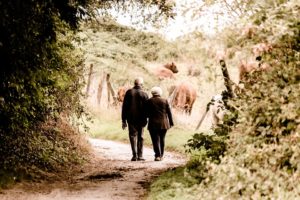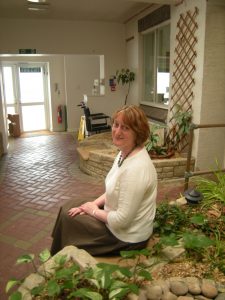
When William, a frail resident in our Bethany home in Plymouth had to go into hospital for treatment, manager Emma Hughes knew exactly how he felt and the outcome he wanted. Although medical treatment was necessary she knew that William wanted to die at Bethany. It had become his home and he knew there he was safe and loved. He became disoriented in hospital, and nurses were puzzled by his saying he wanted to go home to ‘look on his face.’ He was discharged back to Bethany and Emma understood at once what he wanted. William’s favourite hymn was ‘That will be glory’, with the words ‘when by His grace I will look on His face, that will be glory, glory for me…’ She knew that the home he was looking to wasn’t just Bethany, but his eternal Home with Jesus.
Emma wouldn’t be surprised to know that in America she would be well qualified as an end-of-life doula. It’s a growing practice that echoes the beginning-of life doulas (not to be confused with midwives) who help mothers during pregnancy and childbirth. An article in today’s Guardian newspaper describes how end-of-life doulas help their patients plan their deaths, talk with them about their wishes, where they would like to die and how they would like to spend their last day.
Sometimes the sheer mechanics of child-birth can be depersonalising and even traumatising so it’s easy to understand how a pregnant woman in today’s busy Western world can feel the need for the personal support of a well informed professional doula. In other cultures this kind of support is given by female family members, sisters and aunts on both sides.
But a doula for end-of-life care? Janie Rakow is president of the International End of Life Doula Association (INELDA), a charity that trains doulas. She said, ‘In America, a few generations ago, our communities were doing this work… we don’t have those same community ties any more, not in the same way, and certainly not the same level of responsibility to each other as used to be woven into our communities.’
She is correct, but should this be the case in our churches and in our Christian communities? We tend to leave issues surrounding death to our pastors and leaders, and we certainly don’t talk about it enough. Families and elderly relatives often avoid the topic for fear of distressing each other, yet Jesus and His apostles, particularly Paul, speak much about death. Paul even said he would ‘prefer rather to be absent from the body and to be at home with the Lord.’

Emma is an end of life care nurse as well as care home manager, and her aim is that everyone should have a ‘beautiful death, fully prepared, spiritually supported and surrounded by calm and loving care.’ She has shared her insights in a booklet prepared with other experts, ‘What Matters in the End – End of Life Care’. It covers all aspects of end of life care and dying, compassionately and most importantly, within a Christian context. It’s available from our website: https://www.pilgrimsfriend.org.uk/shop/what-matters-in-the-end
Do you feel free to talk about dying with your elderly relatives?














